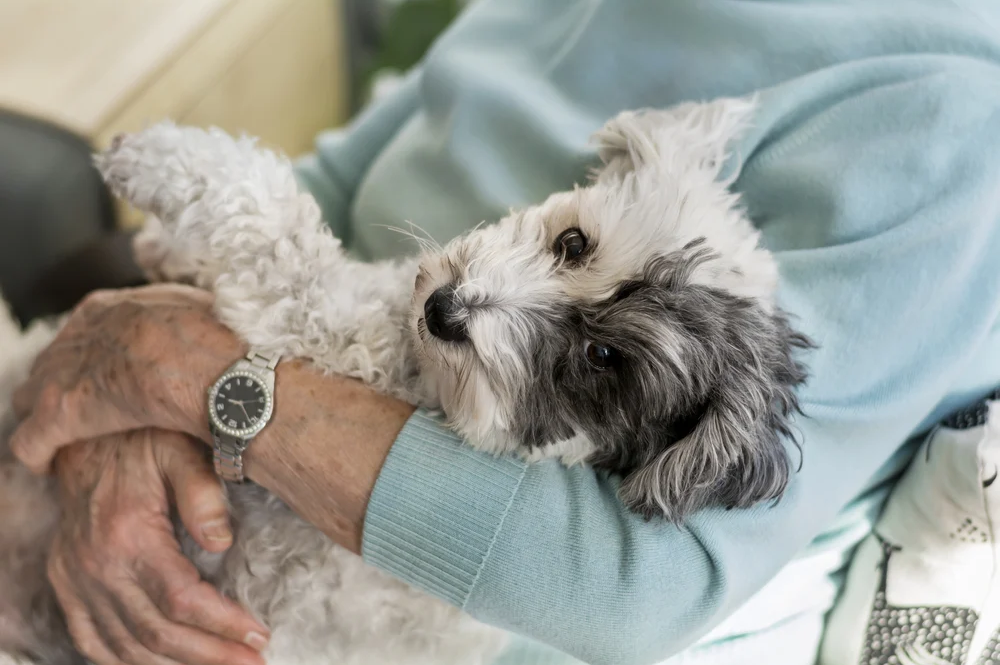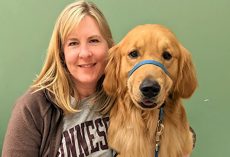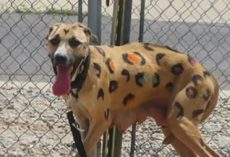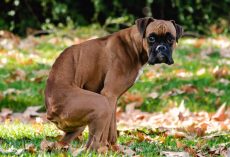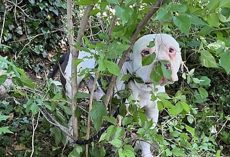In our golden years, dogs are not just loyal companions but can also bring a sense of purpose and joy. This is particularly relevant as companionship becomes increasingly important with advancing age.
While selecting a dog, seniors need to consider factors such as breed temperament, size, exercise needs, and grooming requirements.
We have rounded up the top 15 dog breeds suitable for seniors, ranging from active breeds for spry seniors to calm, lower-maintenance dogs for those with a more sedentary lifestyle.
- Poodle: Renowned for their intelligence and hypoallergenic coat, Poodles come in three sizes—Standard, Miniature, and Toy. The smaller varieties are perfect for apartment living and are generally low-maintenance.
- Shih Tzu: This small breed is an ideal lap dog. Shih Tzus are known for their friendly and loving nature. They require moderate exercise, making them a great match for seniors.
- Cavalier King Charles Spaniel: Known for their gentle demeanor and affectionate nature, these dogs love to snuggle, making them perfect companions. Their small size and moderate exercise needs align well with a less active lifestyle.
- Bichon Frise: This small breed is joyful, playful, and loves human company. Bichons are hypoallergenic and low-shedding, making maintenance easier for seniors.
- French Bulldog: These compact, well-behaved dogs require minimal exercise. Their calm demeanor, coupled with their love for human companionship, makes them a good fit for older adults.
- Boston Terrier: Known as the “American Gentleman,” this breed is friendly, intelligent, and easy to train. Their small size and low-maintenance coat make them suitable for apartment living.
- Pembroke Welsh Corgi: Although they require regular exercise, Corgis are intelligent, easy to train, and have a loveable personality. They are good companions and provide just the right amount of activity for more active seniors.
- Pomeranian: Pomeranians are small, cheerful, and love to be the center of attention. Their need for minimal exercise and small size makes them a good fit for seniors.
- Maltese: These dogs are gentle, affectionate, and enjoy spending time with their owners. Their small size, along with the fact that they’re hypoallergenic, make them a good choice for seniors.
- Scottish Terrier: Known for their independence and intelligence, Scottish Terriers are low-energy dogs perfect for seniors who want a more independent pet.
- Pekingese: Their laid-back nature and small size make Pekingese excellent companions for seniors. However, their long coats do require regular grooming.
- Dachshund: Dachshunds are friendly, intelligent, and relatively low-energy. Their compact size is great for seniors with smaller living spaces.
- Lhasa Apso: These dogs are known for their longevity and can be a companion for many years. They are calm, making them suitable for a relaxed lifestyle, though they do require regular grooming.
- Chihuahua: Chihuahuas are excellent companions, known for their loyalty. Their minimal grooming and exercise requirements, along with their small size, make them well-suited for seniors.
- Greyhound: Contrary to popular belief, Greyhounds are not high-energy dogs. They’re known as “45 mph couch potatoes” and are happy with short walks and long naps, making them great for a less active lifestyle.
In conclusion, the best dog breeds for seniors are those that match their lifestyle and health. From active and playful breeds like the Pembroke Welsh Corgi to the laid-back and calm Greyhound, there is a perfect dog for every senior.
Be sure to consider the specific needs and personality of each breed when choosing your new four-legged friend. With the right match, a dog can significantly enhance the quality of life in your golden years.
Tips for Choosing the Right Dog for Seniors
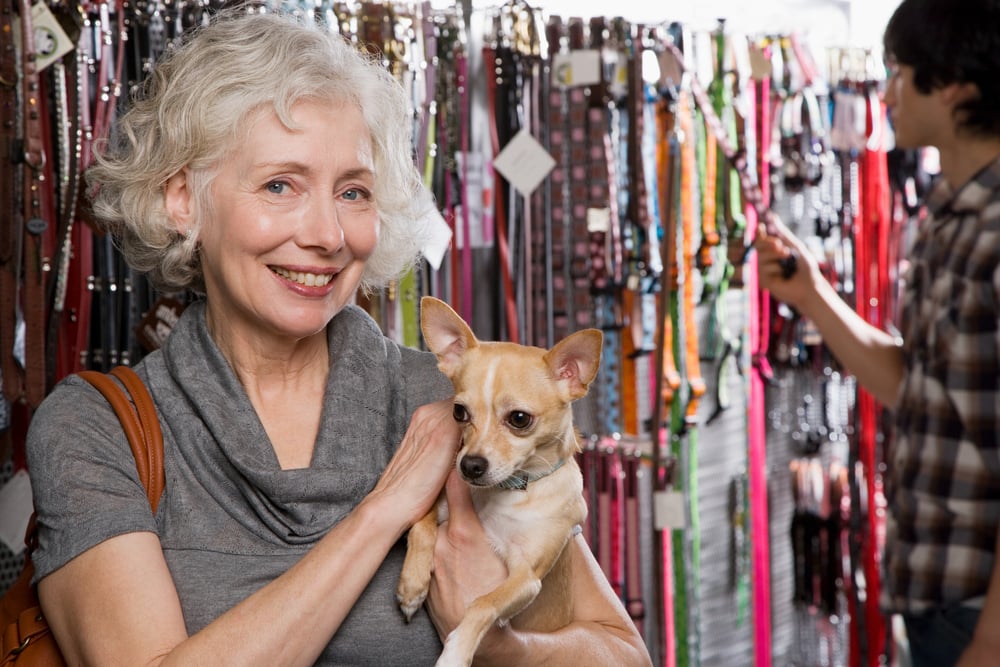
Getting a dog can be a major decision for anyone, but especially for seniors. While the companionship and joy a dog provides are unmatched, seniors need to consider their ability to properly care for a dog long-term.
Specific traits like minimal shedding, low activity needs, and a gentle temperament are key for senior dog owners. With some thought as to the breed, size, and individual personality, seniors can find the perfect furry companion.
Lower Energy Breeds are Ideal for Seniors
High energy dog breeds like huskies or boxers that require vigorous daily exercise are probably not the best match for most seniors.
Senior dog owners will do best with lower energy dogs that are satisfied with shorter, slower walks and only moderate playtime.
Breeds like Cavalier King Charles Spaniels, French Bulldogs, Greyhounds, and Basset Hounds tend to match well with a senior’s more relaxed lifestyle.
Of these lower energy breeds, Cavalier King Charles Spaniels and French Bulldogs tend to be better choices as they are smaller, only reaching up to 25 pounds.
Larger dogs can be harder to control on leash and to pick up if needed. A dog that only needs moderate daily walks and some indoor playtime or fetching fits well with a senior’s physical abilities. Their smaller bladders also mean they need to be let out less frequently than bigger dogs.
Bichon Frise, Havanese, Maltese, Shih Tzus, and other toy and miniature breeds are additional smaller breed options worth considering.
Their tiny size makes them easy to handle and they enjoy being lap dogs and cuddle buddies. They need minimal exercise beyond short walks.
Smaller dogs also tend to have longer lifespans, increasing the time seniors get to spend with them.
Choose Breeds Prone to Fewer Health Issues
Along with lower energy, senior dog owners may want to consider breeds with fewer inherited health conditions. As a dog ages, health problems can pile up and be difficult for seniors to manage along with their own health needs. Selecting healthy breeds can help minimize these issues.
The Cavalier King Charles Spaniel is unfortunately prone to some serious genetic conditions, so be sure to research breeders carefully if going that route.
Bichon Frise, French Bulldog, Greyhound, and Maltese are generally healthy breeds according to the Canine Health Information Center. Havanese can be prone to some joint issues. But overall, these toy and small dog breeds make good choices.
If opting for a larger breed, Labrador Retriever is a highly recommended healthy breed. Labs have outgoing, gentle dispositions that make them great companion dogs. Their short coats are also easy to groom.
Other larger low energy breeds like Bloodhound, Great Dane, and Mastiff can work but they may have more expensive health issues due to their size and be harder for seniors to handle.
A Non-Shedding Breed Makes Grooming Easier for Seniors
Grooming a dog takes work, including regular brushing, bathing, nail trims, and cleaning ears. For seniors, choosing a breed with minimal shedding makes coat care much easier. The previously mentioned Havanese, Maltese, and Shih Tzu breeds rarely shed.
Poodles are another excellent non-shedding breed with three sizes to choose from. Standard poodles can be too large and energetic, but miniature and toy poodles are calmer companions. Their tight curly coats also make them basically hypoallergenic. Owners do need to make arrangements for regular professional grooming every 4-6 weeks to maintain their fur.
Other breeds like Airedale Terrier, Schnauzer, and Wirehaired Fox Terrier have wiry coats that shed minimally.
Pick a Gentle Temperament
A dog’s personality and temperament can vary a lot within a breed based on socialization, training, and the individual dog. However, some breeds tend to be more gentle, patient, and eager to please – traits that suit seniors well.
Cavalier King Charles Spaniels, Havanese, Bichon Frise, and Maltese are all breeds that are consistently characterized as excellent companion dogs. They form strong bonds with owners and most have mellow, biddable personalities.
Labrador and Golden Retrievers are two of the most popular breeds for good reason – they are friendly, socially outgoing, intelligent, and aim to please. Their original purpose as hunting dogs means they are gentle when carrying prey. These qualities translate to being wonderful assistance dogs and great matches for seniors.
A rescue dog mixed breed can also make a perfect senior companion. Adult and senior dogs’ personalities are already apparent, allowing adoption counselors to match them well.
Mixed breeds also tend to have fewer health issues than some purebreds. Taking the time to find a mature low energy dog with a gentle disposition can lead to the ideal senior dog match.
The Importance of Proper Socialization and Training
While breed traits and temperament are important, socialization and training play a huge role in how any dog behaves. Shy, anxious, or reactive dogs can become well-adjusted with early positive experiences. And dogs with inherent gentle natures still need manners training not to jump on visitors or pull on leash.
Seniors will do best choosing an adult or senior dog that has already been socialized and trained, rather than going through the puppy training stages.
Adopting from foster home situations can be great since they have inside knowledge of the dog’s personality and any training needs.
Seniors should also be sure they can handle the physical aspects of training like controlled leash walking. Pet behaviorists can be a valuable tool as well.
Finding a Perfect Companion for a Senior
There are so many factors for seniors to consider when getting a dog – from size, energy, health, coat, temperament and beyond.
But thoughtfully weighing breed traits, lifestyle factors, and a dog’s individual personality can lead seniors to wonderful companions.
With millions of adoptable dogs out there, taking time to make the right match brings benefits both for the senior owner and for the beloved dog.
The result is a significant relationship adding joy and comfort to the senior’s life.
Frequently Asked Questions About Choosing the Right Dog Breed for a Senior Citizen
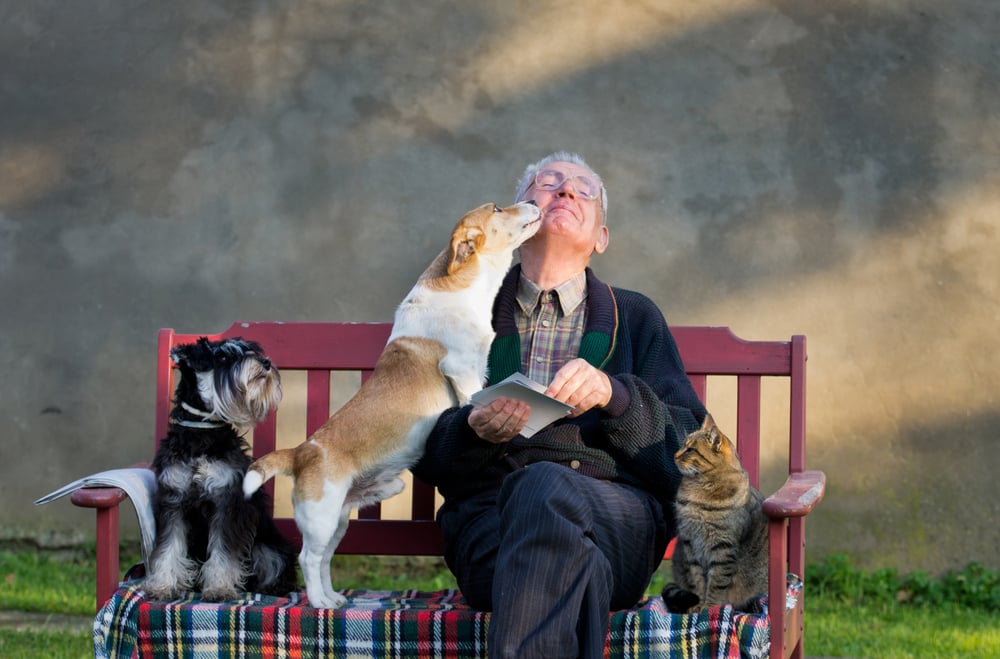
- What are the most low-maintenance dog breeds for seniors?
- Breeds like French Bulldogs, Boston Terriers, and Pugs are generally low-maintenance. They require less exercise than many other breeds and have simple grooming needs.
- What small dog breeds are best for seniors?
- Smaller breeds like Poodles, Shih Tzus, and Bichon Frises are ideal for seniors, as they are easy to handle, require moderate exercise, and are usually good indoor dogs.
- Are there any dog breeds that are hypoallergenic?
- Yes, several breeds are hypoallergenic, including Poodles, Bichon Frises, and Malteses. These dogs are a good option if you have allergies.
- Do larger breeds like Greyhounds require a lot of exercises?
- Despite their size, Greyhounds are typically couch potatoes and require less exercise than one might expect. They’re content with short walks and lots of rest.
- Are there dogs that are easier to train than others?
- Breeds like Poodles, Boston Terriers, and Cavalier King Charles Spaniels are known for their intelligence and trainability, which can make them good for seniors.
- What breed is best for a senior living in an apartment?
- Small to medium-sized breeds with lower exercise needs, such as French Bulldogs, Shih Tzus, or Pomeranians, are well-suited to apartment living.
- I have grandchildren who visit often. Which breeds are more child-friendly?
- Breeds like the Cavalier King Charles Spaniel, Beagle, and Poodle are generally good with children and make excellent family pets.
- Are there dog breeds that are more likely to suffer from health issues?
- Some breeds are prone to certain health issues. For instance, Dachshunds can have back problems, and Bulldogs can have respiratory issues. Always research a breed’s common health problems before choosing a pet.
- I want a dog that is calm and not overly energetic. Which breed should I consider?
- Breeds like the Shih Tzu, Bichon Frise, and Greyhound are known for their calm demeanors and could be a good match for you.
- What are some dog breeds known for their longevity?
- Small breeds like the Dachshund, Lhasa Apso, and Maltese are often noted for their longevity.
- I love going for daily walks. What are some active dog breeds?
- If you’re an active senior, breeds like the Pembroke Welsh Corgi, Beagle, or Miniature Schnauzer might be a good fit, as they enjoy daily exercise and walks.
- Which dogs are best for providing emotional support and companionship?
- Dogs like the Cavalier King Charles Spaniel, Golden Retriever, and Poodle are known for their affectionate nature and can provide excellent emotional support and companionship.
- What are some independent dog breeds?
- Breeds like the Scottish Terrier and Shiba Inu are known for their independence, although they still enjoy human companionship.
- I’m concerned about barking. Which dog breeds are quieter?
- Breeds like the Basenji (known as the “barkless dog”), Shih Tzu, and French Bulldog are typically quieter breeds.
- Are there breeds that are easier for seniors to handle physically?
- Small breeds such as the Bichon Frise, Poodle, and Shih Tzu are often easier to handle because of their size and weight.
- What dog breeds have the most friendly and outgoing nature?
- Breeds like the Cavalier King Charles Spaniel, Labrador Retriever, and Poodle are known for their friendly and outgoing nature.
- What breeds are less likely to trigger my allergies?
- Hypoallergenic breeds like the Poodle, Shih Tzu, and Bichon Frise produce fewer allergens and may be less likely to trigger allergies.
- What breeds are best if I want a dog mainly for security?
- Breeds such as the Rottweiler, German Shepherd, and Boxer are known for their protective nature. However, they often require more care and training.
- Are there breeds that do not require regular grooming?
- Yes, breeds such as the Dachshund, Boston Terrier, and French Bulldog have short coats that require minimal grooming.
- Which breeds are best for a senior citizen’s lifestyle?
- The best breed depends on the individual’s lifestyle, but breeds like the Poodle, Shih Tzu, and French Bulldog are often popular choices for seniors due to their manageable size, friendly demeanor, and moderate exercise needs.

